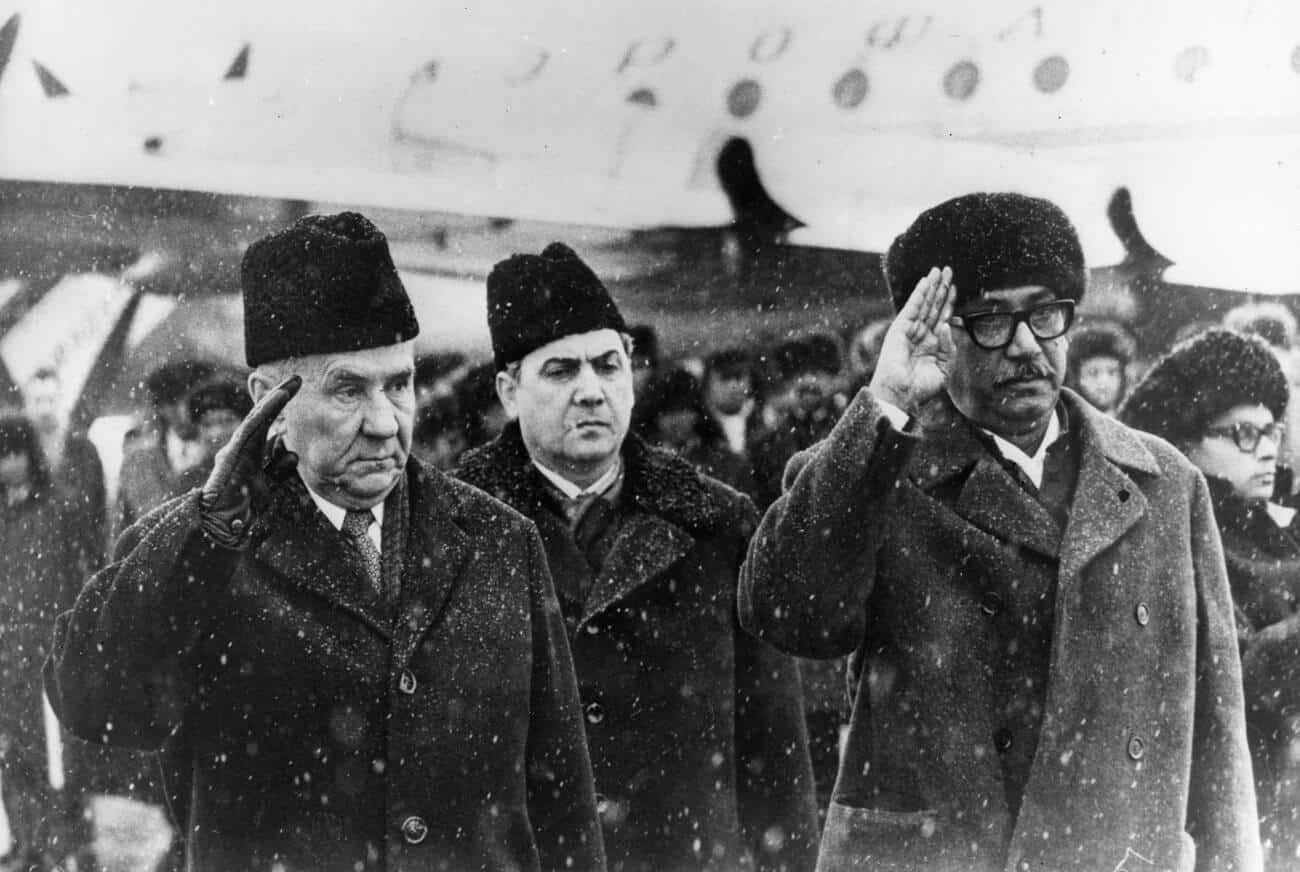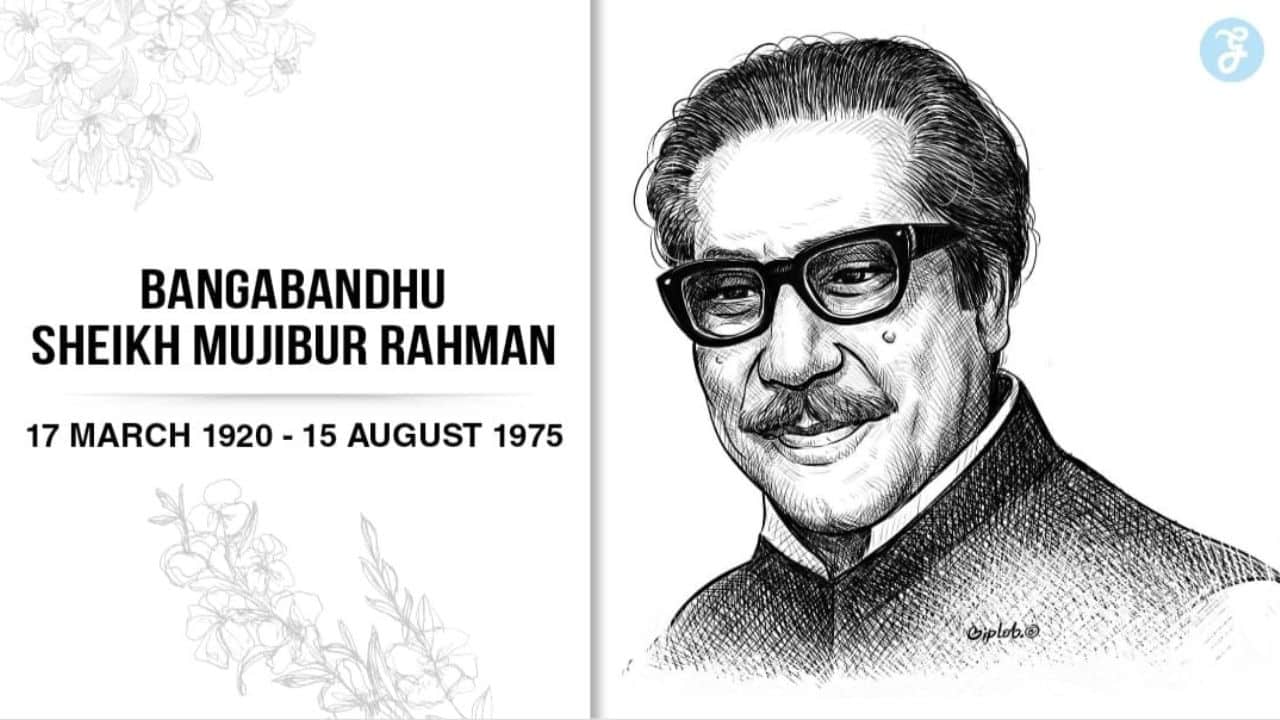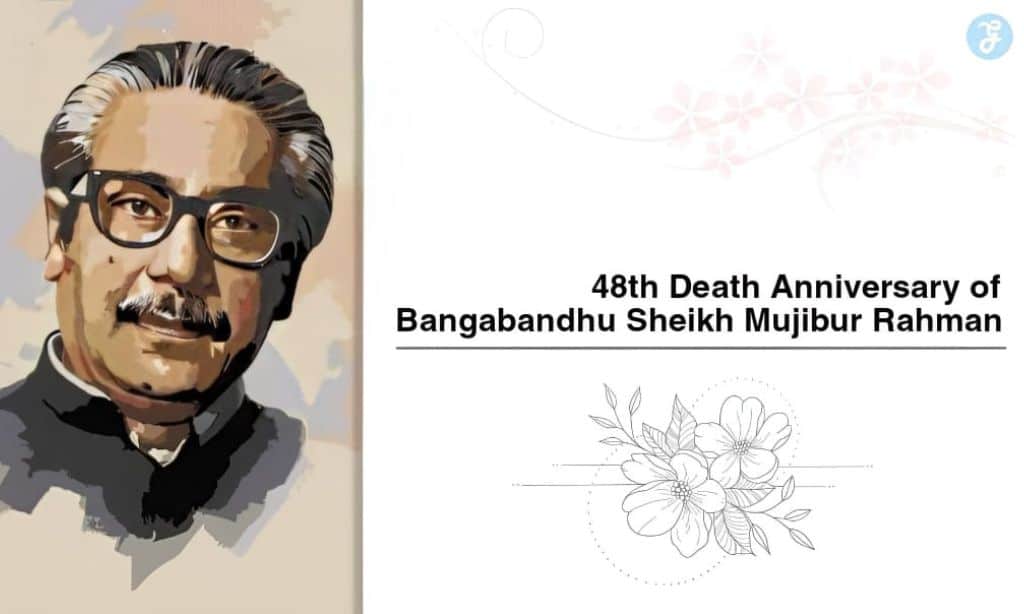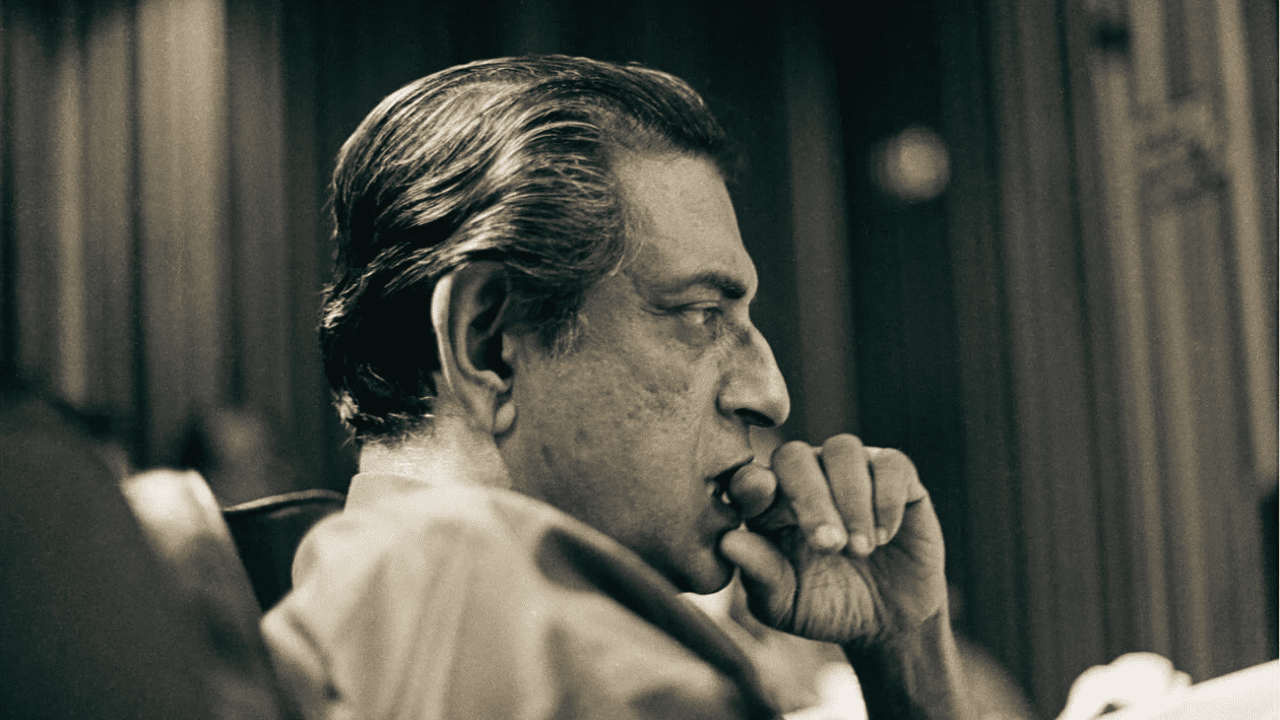Reflecting on the past can be a bittersweet journey, especially when recalling pivotal figures like Sheikh Mujibur Rahman, commonly known as Bangabandhu. Marked by his undying devotion to Bangladesh’s independence and subsequent presidency, his legacy is profound and live.
This article delves deep into Bangabandhu’s 48th death anniversary, capturing moments of unprecedented triumphs, internal political struggles, and heartbreaking assassination. Stick around; our journey through history promises to bring tribute and tears alike.
Content Highlights
- Sheikh Mujibur Rahman, also known as Bangabandhu, played a crucial role in the independence of Bangladesh and served as its first president.
- The assassination of Sheikh Mujibur Rahman on August 15, 1975, led to widespread protests and, eventually, the trial and execution of the conspirators.
- Every year on August 15th, Bangladesh observes National Mourning Day to pay tribute to Bangabandhu’s legacy.
Sheikh Mujibur Rahman: Role in the Independence of Bangladesh
| Biographical Details | Date and Information |
| Date of Birth | 17 March 1920 |
| Place of Birth | Tungipara, Gopalganj District, British India (Now Bangladesh) |
| Date of Death | 15 August 1975 |
| Place of Death | Dhaka, Bangladesh |
| Education | Studied at Islamia College, Calcutta |
| Family | |
| Father’s Name | Sheikh Lutfur Rahman |
| Mother’s Name | Sayera Khatun |
| Spouse | Sheikh Fazilatunnesa Mujib |
| Children | Sheikh Hasina, Sheikh Kamal, Sheikh Jamal, Sheikh Rehana, and Sheikh Russel |
| Notable Events | |
| Language Movement | Played a significant role in 1952 |
| Six-Point Movement | Introduced in 1966 for the autonomy of East Pakistan |
| 1970 General Elections | Awami League, led by Mujibur Rahman, won 160 out of 162 seats in East Pakistan. |
| Historic 7th March Speech | In 1971, he delivered a historic speech calling for civil disobedience and non-cooperation with West Pakistan. |
| Liberation War | Led Bangladesh in its fight for independence against Pakistan in 1971 |
| Establishment of Bangladesh | Became the first President of Bangladesh in 1971, later becoming its Prime Minister |
| Assassination | He was tragically assassinated in 1975, along with most of his family members. |
Table: Brief biography of Bangabandhu Sheikh Mujibur Rahman
Sheikh Mujibur Rahman, affectionately known as Bangabandhu or “Friend of Bengal,” is indelibly etched in history as the linchpin of Bangladesh’s journey to independence. As the leader of the Awami League, his advocacy for Bengali nationalism was evident as early as the 1960s, when he championed the rights of Bengalis in then-East Pakistan, defying the dominant political power centered in West Pakistan.
His eloquence and charisma culminated in the landmark speech of 7th March 1971, which many interpret as a de facto declaration of independence, igniting the flame of liberation in the hearts of millions. Subsequently, the brutal crackdown by the Pakistani military on March 25th further galvanized the nation behind him.
Throughout the harrowing nine-month-long Liberation War, Sheikh Mujib’s leadership was a beacon of hope and unity for the Bengali people, even as Pakistani authorities imprisoned him. When the war culminated in victory on December 16th, 1971, Bangladesh emerged as an independent nation, with Sheikh Mujibur Rahman’s role being fundamental, earning him the title “Father of the Nation.”
Presidency of Sheikh Mujibur Rahman

Sheikh Mujibur Rahman played a crucial role in the independence of Bangladesh and successfully overcame various challenges during his presidency.
| Aspect | Details |
|---|---|
| Duration of Presidency | 12 January 1972 – 24 January 1975 |
| Political Party | Awami League |
| Key Decisions | – Initiated state-controlled economic policies. |
| – Adopted a secular and socialist constitution in 1972. | |
| – Established the Jatiyo Rakkhi Bahini (national paramilitary force). | |
| Domestic Achievements | – Formation of Bangladesh’s first post-independence constitution. |
| – Emphasized secularism and nationalism in policies and governance. | |
| – Launched special drives to increase food production and control smuggling. | |
| Domestic Challenges | – Faced political unrest and opposition from multiple factions. |
| – Economic difficulties and famine in 1974. | |
| – False Allegations of human rights abuses, particularly related to the Jatiyo Rakkhi Bahini. | |
| Foreign Relations | – Strengthened ties with India following the Liberation War. |
| – Established diplomatic relations with numerous countries and became a member of the United Nations in 1974. | |
| End of Presidency | Shifted to the role of Prime Minister in January 1975 after introducing a new system, which concentrated power in the PM’s office. |
| Legacy | – Revered as the “Father of the Nation” for his instrumental role in Bangladesh’s independence. |
| – His vision of secularism and nationalism remains foundational for many in Bangladesh, despite the challenges during his presidential era. |
Table: Notable events during the Presidential era of Sheikh Mujibur Rahman
Challenges During His Presidency
The presidency of Bangabandhu Sheikh Mujibur Rahman, the Father of the Bengali Nation, was marked by monumental promises and profound challenges. Ascending to leadership after spearheading Bangladesh’s struggle for independence from Pakistan in 1971, Mujib inherited a nation ravaged by war, marked by devastated infrastructure, a shattered economy, and a population traumatized by the brutality of the conflict. Additionally, the country faced enormous expectations from its people, who yearned to improve living standards and governance rapidly.
Mujib grappled with post-war reconstruction, political upheavals, the imperatives of establishing democratic norms, and the mammoth task of uniting a diverse populace under the nascent banner of Bangladeshi nationalism. Moreover, the 1974 famine posed a significant test to his administration, as did the latent threats to his leadership, culminating tragically in his assassination in 1975.
While his tenure was marked by vision and passion, the sheer scale and complexity of the challenges he confronted posed significant hurdles to realizing his dream of a prosperous and just Bangladesh.
Read Also: Sheikh Hasina is Iron Lady of Asia – Who Leads the Country of 17 Crore People
The Assassination of Bangabandhu Sheikh Mujibur Rahman
The assassination of Bangabandhu Sheikh Mujibur Rahman on August 15, 1975, remains one of the most tragic and pivotal events in the history of Bangladesh. As the nation’s founding leader, Sheikh Mujibur Rahman, often called the “Father of the Nation,” was instrumental in guiding Bangladesh to independence in 1971 following a brutal war against Pakistan.
His leadership was characterized by a vision of secularism and national unity, yet, post-independence, his tenure also witnessed political unrest and economic challenges. In the early hours of that fateful August day, a group of junior army officers stormed his residence in Dhaka, resulting in the death of Bangabandhu and most of his family members.
The motives behind the assassination have been debated, but the aftermath plunged the nation into political instability and military rule. His legacy, however, remains firmly intact as a symbol of resilience, hope, and the dream of a prosperous Bangladesh.
Conspirators and their Motives
The assassins who killed Sheikh Mujibur Rahman had different reasons for their actions. Some wanted to eliminate the Bangabandhu family and the top leaders of the Awami League. It was a group of young conspirators who carried out this tragic act.
The motives behind the conspiracy continue to be debated, making it a controversial topic even today.
Execution of the Assassination Plot
On the fateful morning of 15th August 1975, a group of disgruntled military officers launched a meticulously planned coup. As dawn broke, these officers and their subordinates stormed into Bangabandhu’s private residence in Dhaka. Tragically, the assault resulted in the demise of Sheikh Mujib and most family members.
The event’s gravity was not just the loss of the leader but the abrupt and brutal manner in which the Father of the Nation was silenced. The reverberations of this event echoed not just within the borders of Bangladesh but also internationally, as world leaders expressed their shock and condemnation.
The assassination underscored the political volatility of the time and marked the beginning of a period of instability for Bangladesh. To this day, the memories of that sorrowful event evoke a deep sense of loss and melancholy among Bangladeshis as they recall the life and legacy of a leader who was instrumental in carving out their nation’s identity.
The motive behind the assassination was political differences and a desire to take control. It took many years for justice to be served, but in 2010, five assassins finally signed death warrants.
Aftermath of the Assassination
The assassination of Bangabandhu Sheikh Mujibur Rahman on August 15, 1975, was a pivotal moment in Bangladesh’s history, leading to profound political consequences and transitions.
-
Immediate Aftermath: The assassination resulted in the near-complete extermination of Sheikh Mujib’s family, save for his two daughters, Sheikh Hasina and Sheikh Rehana, who were abroad then. After the assassination, Major General Ziaur Rahman (often called Zia) became a significant figure, gradually consolidating power and becoming the Chief Martial Law Administrator.
-
Military Rule and Coups: The years following Mujib’s assassination witnessed a series of coups and counter-coups. In November 1975, there was another coup led by Brigadier Khaled Mosharraf, followed by another one within days, bringing Major General Ziaur Rahman back to prominence. The political landscape during this period was marked by instability, with the military playing a central role.
-
Zia’s Ascendance and BNP: General Ziaur Rahman later founded the Bangladesh Nationalist Party (BNP) in 1978, orienting the country away from Sheikh Mujib’s socialist principles and introducing multiparty politics. He also promoted a sense of Bengali nationalism alongside the Islamic identity of the state.
-
Visionary Changes: Under Zia and subsequent military rulers, there was a move towards Islamization of the state, which contrasted with Mujib’s secular vision. Zia amended the constitution to replace “secularism” with “absolute trust and faith in the Almighty Allah.”
-
Return to Democracy: The military’s grip continued until the late 1980s. After Zia’s assassination in 1981, another military leader, Hossain Mohammad Ershad, took power in 1982 and ruled till 1990. Massive protests and political pressures eventually led to his resignation, marking the beginning of a transition back to civilian rule.
-
Awami League’s Return: The 1990s witnessed the return of parliamentary democracy with two primary parties, the BNP led by Zia’s widow, Khaleda Zia, and the Awami League led by Mujib’s daughter, Sheikh Hasina, dominating the political scene. The two leaders alternated in power, with periods marked by political rivalry and tension.
The assassination of Sheikh Mujibur Rahman not only marked the tragic death of the nation’s founding leader but also paved the way for a series of political upheavals, setting the stage for the country’s complex political trajectory in the subsequent decades.
Protests and Outrage
After the assassination of Sheikh Mujibur Rahman, there were widespread protests and outrage throughout Bangladesh. People were angered by the heinous killing of their beloved leader.
They took to the streets to express their grief and anger, demanding justice for Bangabandhu’s death. The nation was in shock and mourning after losing such a significant figure. The protests served as a way for people to unite and stand against this violence.
It was a time of intense emotions and unity as Bangladesh mourned the loss of its founding father.
Tributes and Mourning
On National Mourning Day, which is observed on August 15 every year, Bangladesh pays tribute to Bangabandhu Sheikh Mujibur Rahman. This day is a solemn occasion for the nation to remember and honor its beloved Father of the Nation.
Prime Minister Sheikh Hasina, his daughter, leads these tributes by offering prayers and laying wreaths at his mausoleum in Tungipara. It is a day of mourning and reflection as people remember the sacrifices made by Bangabandhu for the independence and development of Bangladesh.
His profound impact on the nation is evident through these heartfelt tributes that continue to be paid yearly.
Trial and Execution of the Conspirators
After the assassination of Sheikh Mujibur Rahman, it was important for justice to be served. The mastermind behind the conspiracy, Khondakar Mushtaq Ahmad, was identified and held accountable.
In 2010, a judge signed the death warrants for five of Sheikh Mujibur Rahman’s killers. This marked a significant step towards seeking justice for the heinous crime committed. The trial and execution of the conspirators reflected the commitment of the government to uphold justice and honor the memory of Sheikh Mujibur Rahman.
It showed that those responsible could not escape punishment for their actions.
Literary Interpretations of the Assassination
Writers have explored the assassination of Sheikh Mujibur Rahman in their literary works and offered different perspectives on the events leading up to it and its aftermath.
Reflection of the Events in Literature
Literature has played a significant role in reflecting upon the events surrounding Sheikh Mujibur Rahman’s assassination. Writers and poets have offered their interpretations of this tragic event and its aftermath, aiming to shed light on the historical context and impact on Bangladesh.
These literary works delve into the implications of the assassination, exploring themes such as internal conflicts, political turmoil, and societal challenges faced by the nation at that time.
By reading these reflections in literature, readers can gain a deeper understanding of the complex events that unfolded during this period in Bangladesh’s history.
Interpretation of the Aftermath in Literary Works
Literature often reflects the aftermath of significant events, and the assassination of Sheikh Mujibur Rahman is no exception. Many literary works explore the consequences and impact of his death on Bangladesh.
These writings provide different perspectives on what happened, capturing the political and social climate at that time. Some authors delve into the emotional turmoil and grief experienced by the nation following the assassination.
Their interpretations illuminate how this tragic event shaped Bangladesh’s history and collective memory.
Commemoration of Bangabandhu 48th Death Anniversary
Bangladesh observes the death anniversary of Bangabandhu Sheikh Mujibur Rahman with national mourning, tribute events, and ceremonies.
National Mourning Day
National Mourning Day is observed on August 15th every year in Bangladesh. It is a day that marks the martyrdom anniversary of Bangabandhu Sheikh Mujibur Rahman, the founding father of Bangladesh.
This day holds great significance for the country and its people. On this official national holiday, various events and programs are organized by institutions and organizations to pay tribute to Bangabandhu’s legacy.
In 2020, for example, the Foreign Service Academy in Bangladesh held a day-long program to observe National Mourning Day. It is a time of reflection, remembrance, and honoring Sheik Mujibur Rahman’s contributions to Bangladesh’s independence and development.
Tribute Events and Ceremonies
Every year on August 15th, Bangladesh comes together to commemorate the death anniversary of Sheikh Mujibur Rahman, also known as Bangabandhu. The nation pays rich tributes to him in various tribute events and ceremonies held across the country.
These events serve as a moment for people to remember and honor Bangabandhu’s contributions to the country. Bangladesh’s President and Prime Minister often participate in these tribute events, paying their respects by laying floral wreaths at Bangabandhu’s mausoleum.
It is a time of mourning and reflection for the people of Bangladesh as they unite to honor his memory.
Impact and Legacy of Sheikh Mujibur Rahman
Sheikh Mujibur Rahman’s leadership and contributions have had a lasting impact on the independence and development of Bangladesh, shaping its political landscape and society as a whole.
The Historical 7th March Speech
Bangabandhu Sheikh Mujibur Rahman’s 7th March speech is revered as a defining moment in the history of Bangladesh, encapsulating the aspirations and emotions of millions of Bengalis yearning for freedom and justice. Delivered in 1971 at the Ramna Race Course in Dhaka amidst escalating tensions between East and West Pakistan, Rahman’s words echoed not just the immediate demands for autonomy but the culmination of years of systemic economic, political, and linguistic discrimination faced by the Bengali populace.
His eloquent oratory, marked by phrases such as “The struggle this time is a struggle for our freedom; the struggle this time is a struggle for our independence,” galvanized the masses, setting the stage for the subsequent declaration of independence and the Bangladesh Liberation War.
This speech, a beacon of inspiration for the people of Bangladesh, was later inscribed as a world documentary heritage by UNESCO in 2017, attesting to its universal significance and the timeless spirit of human resilience it represents.
Contributions to the Independence and Development of Bangladesh
Bangabandhu Sheikh Mujibur Rahman played a vital role in leading Bangladesh to independence. He was a key figure in the movement for self-determination and successfully advocated for the rights of Bengali people.
Under his leadership, Bangladesh gained independence from Pakistan in 1971, creating a new nation.
After independence, Sheikh Mujibur Rahman focused on rebuilding and developing the country. He implemented various policies and initiatives to improve education, healthcare, infrastructure, and agriculture.
His government also emphasized the importance of national unity and worked towards establishing a strong sense of identity among Bangladeshi citizens.
Influence on Bangladeshi Politics and Society
Sheikh Mujibur Rahman had a significant influence on Bangladeshi politics and society. His leadership and policies were crucial in shaping the nation’s development and achievements.
As the president of Bangladesh from 1971 to 1972 and later as the prime minister from 1972 to 1975, he worked tirelessly for the rights of Bengalis during their struggle for independence.
Sheikh Mujibur Rahman co-founded the Awami League, a political party that continues to have a major presence in Bangladesh today. His assassination in 1975 left the nation devastated, but his legacy lives on through his contributions to the independence and growth of Bangladesh.
How the Younger Generation Perceives His Legacy
To the younger generation, Bangabandhu is more than a mere historical figure. In the age of digital media and global connectivity, they’ve inherited a tapestry of tales rich with resilience, dreams, and an unwavering pursuit of freedom.
While they did not witness the epochal moments firsthand, schools, familial narratives, and community discussions have instilled a deep respect for his vision and sacrifices. To them, Bangabandhu’s legacy signifies the quintessence of nationhood and identity. They see him as a beacon, guiding their aspirations in an ever-evolving Bangladesh.
In a world of fleeting trends, the enduring admiration the youth holds for Bangabandhu is a testament to his timeless relevance and the indomitable spirit he epitomized.
Bangladesh Today: The Influence of Bangabandhu
In the vibrant tapestry of modern Bangladesh, the threads woven by Bangabandhu Sheikh Mujibur Rahman remain vivid and memorable. His vision, forged during the tumultuous birth of the nation, has left an enduring mark on its socio-political and cultural landscape. Whether one walks through the bustling streets of Dhaka or the serene villages along the Padma River, the influence of Bangabandhu can be palpably felt.
From grand edifices and monuments bearing his name to policies and ideals reflecting his ethos, his legacy reverberates in the nation’s collective consciousness. While the bustling economy and the progressive strides made by Bangladesh today showcase its potential and resilience, the foundational values imbibed by Bangabandhu’s leadership remind its people of their roots, struggles, and the vision of unity and progress he had set forth.
Final Words
Bangabandhu’s death anniversary commemorates the loss of Sheikh Mujibur Rahman, a significant figure in Bangladesh’s history. This timeline highlights his role in the country’s independence and the challenges he faced during his presidency.
The assassination of Bangabandhu sparked outrage and mourning, leading to trials and executions of those responsible. Today, his legacy continues to impact Bangladeshi society.
Frequently Asked Questions (FAQs)
Check the answers to some commonly asked questions about the death of Bangabandhu Sheikh Mujibur Rahman below.
1. Who was Bangabandhu?
Bangabandhu refers to Sheikh Mujibur Rahman, the founding father of Bangladesh and its first President.
2. What is the significance of Bangabandhu’s death anniversary?
Bangabandhu’s death anniversary is significant as it marks the remembrance of his assassination on August 15, 1975, and serves as an opportunity to honor his contributions to Bangladesh’s independence movement.
3. How is Bangabandhu’s death anniversary commemorated?
The death anniversary of Bangabandhu is commemorated through various events such as rallies, tributes at his memorial site, special prayers, and cultural programs held across Bangladesh.
4. Why are there tears during Bangabandhu’s death anniversary?
Tears are shed during Bangabandhu’s death anniversary due to the emotional impact of remembering his tragic assassination and the loss many feel for losing their beloved leader.













































